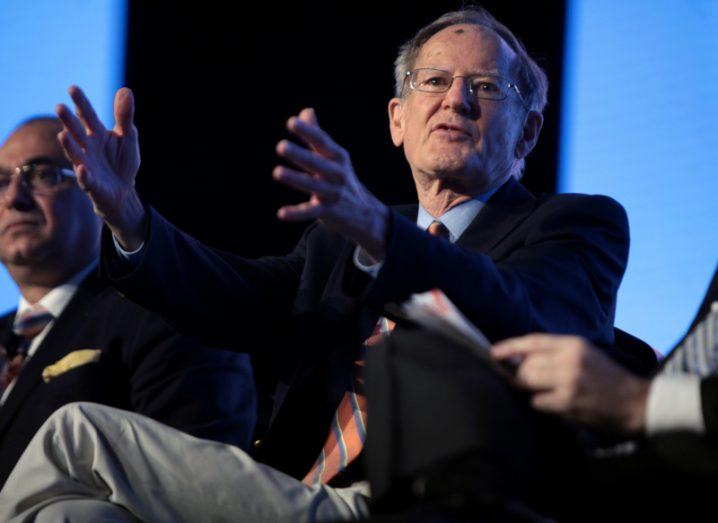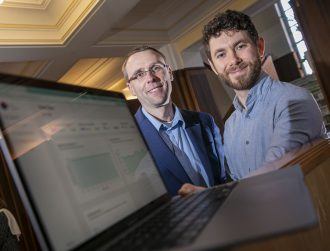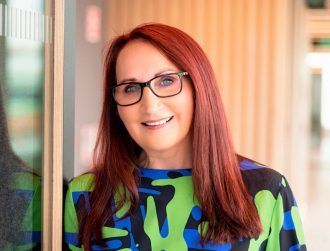
George Gilder speaking at an event in Las Vegas in 2016. Image: Gage Skidmore (CC BY-SA 2.0)
George Gilder, the renowned US economist and author, tells Vish Gain at MWC Barcelona why artificial intelligence will enhance – not replace – human lives.
Artificial intelligence is now well and truly on its way to disrupting many industries, from business management and customer care to education and healthcare. And while many experts worry about the consequences this could have in the short term, George Gilder thinks the only thing we should concern ourselves with is making sure AI gets even better at performing human tasks.
“When people object to AI, most of the time they are objecting because it’s not good enough,” he told me in an interview at the Huawei Digital Talent Summit during MWC Barcelona.
The 83-year-old veteran economist and investor from New York has dedicated his career to investigating and discussing how technology is shaping the modern economy and human life. Gilder is the author of the 1981 classic Wealth and Poverty, which advanced a case for supply-side economics and capitalism during the early months of the Reagan administration.
‘Jobs are not a zero-sum game’
Since then, he’s spoken and written extensively about the rise of emerging technologies, including in his 2018 book Life after Google which discusses the fall of big data and the rise of the blockchain economy, which was selected as a Financial Times book of the month.
However, it his latest work, Gaming AI: Why AI Can’t Think but Can Transform Jobs, that has garnered attention for its highly optimistic take on the rise of AI, arguing against the singularity theory which propounds that AI will one day take over human civilisation irreversibly.
Take for instance, jobs. One of the first concerns around the rise of AI in the last decade has been around its potential to replace human workers across a plethora of industries, from manufacturing and delivery to finance and even journalism.
Gilder thinks there’s nothing to worry about.
“The history of employment in the world is that the more technology, the more jobs. There’s this illusion that jobs are a zero-sum game, that technology does something, and this means that human beings do less,” he explained.
“Technology enhances human beings and thus makes us more employable. We don’t get employed because we’re unproductive. We get employed because we’re productive.”
AI can’t replace a ‘creative’ human mind
And while many are concerned about the disruption this would cause to many workers, especially with the rise of AI-powered automation in manually intensive roles such as in factories, Gilder goes as far as saying he is looking forward to that disruption.
“We don’t like physical, manual jobs all that much. Most people feel oppressed by the requirement to constantly be performing physical, manual jobs that could be more efficiently performed by a robot.
“There’s always disruption – that’s life. It makes life interesting and provocative. If there’s no disruption, you have a great machine that annihilates human souls and minds. That’s not a good world to envisage,” he said.
For less manually-demanding jobs, such as banking or teaching, Gilder thinks AI can replace the function of the role, but it can’t – and shouldn’t – replace the decisions which reflect a creative human mind.
“There are more and more companies performing more and more functions with fewer and fewer people. That’s an enhancement of human liberty. There’s more entrepreneurs and fewer workers, which is really the history of increased human productivity.”
So, does AI pose a threat to humans at all? Gilder thinks this will depend on how people view AI and whether or not they’re able to see it for what it really is – a programme created by humans.
“The threat of AI to me is that people worship it and defer to it. They think that their perception is not relevant anymore in a world where AI supposedly has all the answers,” he explained.
“But all those answers are programmed from the past. They’re pattern recognition from digital feeds of data that happen to dominate the internet. And that’s not wisdom – that’s the ability to see patterns in the past and project them into the future.
“ChatGPT, for instance, might have some plausible surfaces of knowledge, but it’s not fundamentally creative. It’s a consensus engine.”
10 things you need to know direct to your inbox every weekday. Sign up for the Daily Brief, Silicon Republic’s digest of essential sci-tech news.
George Gilder speaking at an event in Las Vegas in 2016. Image: Gage Skidmore (CC BY-SA 2.0)






